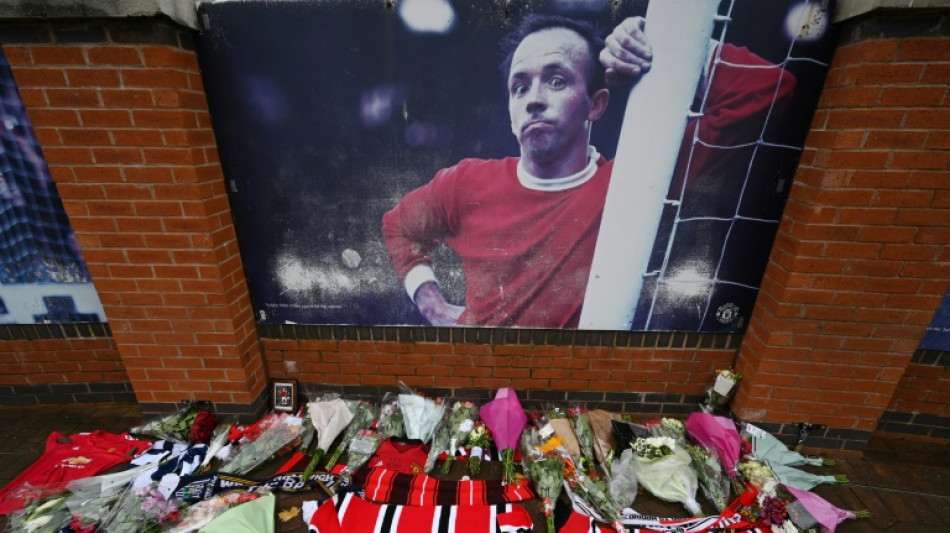

World Cup winner Stiles' family plan to sue FA over brain injuries
The family of England World Cup winner Nobby Stiles said Friday they were among a group of families planning to sue the Football Association over their failure to protect players from brain injuries.
Lawyers representing the Stiles family have accused several football authorities, including England's governing FA, of taking insufficient action to reduce heading the ball in training and during matches.
They also claim on-pitch assessments of players showing symptoms of concussion are "not fit for purpose".
Stiles died in October 2020 aged 78 having suffered from dementia.
He was found to have chronic traumatic encephalopathy, a progressive brain condition caused by repeated blows to the head.
His son, John Stiles, said Friday: "Since dad died, I have been part of a campaign to address the ongoing scandal of dementia in football in all its various aspects.
"This potential lawsuit is part of this overall campaign for justice for the victims, like dad, and for fundamental change in an industry that continues to cause the death and illness of thousands of players (professional and amateur, men and women) every year."
Three other members of the England team that beat the then West Germany 4-2 in the 1966 World Cup final at Wembley -- Jack Charlton, Martin Peters and Ray Wilson -- were suffering with dementia at the time of their deaths.
And another member of the team, football great Bobby Charlton, whom Stiles also played alongside at Manchester United, was diagnosed with dementia last year.
While there have long been concerns over the safety of boxing, given the effects of repeated blows to the head, several other sports are now confronting the potential consequences of brain injury.
Former England rugby union forward Steve Thompson is one of scores of players in the 15-a-side game who have decided to sue a number of governing bodies for negligence.
The 44-year-old, a member of the England team that won the 2003 Rugby World Cup, has been diagnosed with early onset dementia.
Research published last month by Glasgow consultant neuropathologist Willie Stewart suggested elite players could be at a significantly greater risk of developing neurodegenerative diseases such as dementia, Parkinson's and motor neurone disease.
P.Mueller--MP




